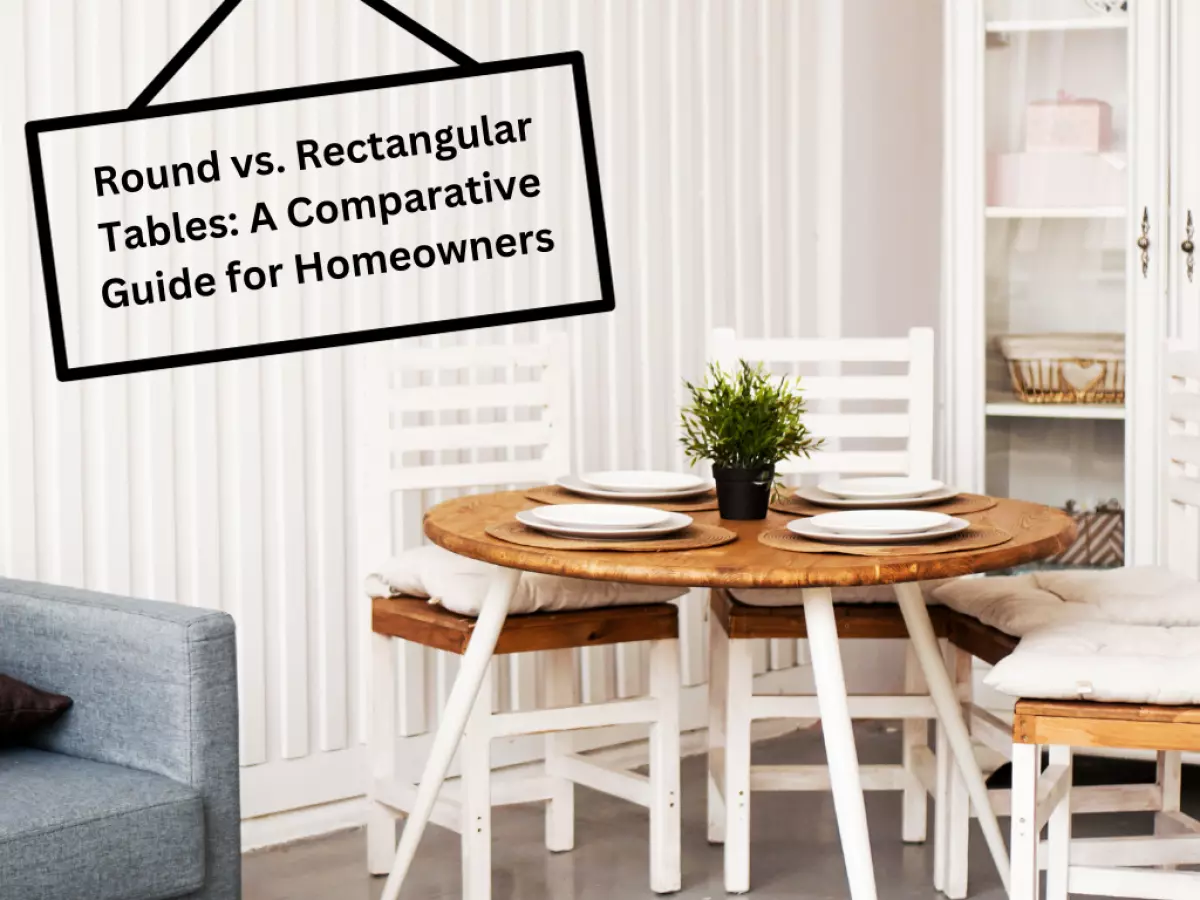 Round vs. Rectangular Dining Tables
Round vs. Rectangular Dining Tables
Introduction: The Shape that Sets the Tone
The shape of your dining table can significantly impact the ambiance and functionality of your dining space. When deciding between a round or rectangular table, it's essential to consider both the aesthetic appeal and practicality. Let's compare the two to help you determine which shape is better suited for your home.
Round Dining Tables: Embracing Coziness and Connection
Round dining tables have long been a favorite choice for homeowners. Their curved edges and symmetrical shape create a warm and inviting atmosphere.
Advantages of Round Tables
- Cozy and Intimate Atmosphere: Round tables facilitate conversation and create a sense of togetherness, making them perfect for small gatherings.
- Safer with No Sharp Edges: If you have children at home, round tables eliminate the worry of accidents caused by sharp corners.
- Better for Games and Socializing: With 360-degree seating, round tables provide a more inclusive experience for board games, puzzles, and casual family meals.
While round tables excel in creating intimate settings, they have limitations in seating capacity and surface area for larger gatherings.
Rectangular Dining Tables: Combining Elegance and Versatility
Rectangular tables offer a more formal look and are ideal for hosting larger groups. Their defined edges and traditional silhouette lend an air of sophistication.
Benefits of Rectangular Tables
- Ideal for Large Gatherings: Rectangular tables can comfortably accommodate 6-10 people, with the option to expand further using table leaves.
- More Formal Appearance: If you have a dedicated dining room, a rectangular table complements the space's elegant aesthetic.
- Versatility in Seating Arrangements: Bench seating on the long sides and open ends allows for flexible seating configurations.
However, it's important to note that rectangular tables require more space and have potential safety concerns with their sharp corners.
Comparative Analysis: Aesthetics and Functionality
 Round vs. Rectangular Dining Tables
Round vs. Rectangular Dining Tables
When it comes to aesthetics and room integration, round and rectangular tables each bring a unique element to your dining area.
- Round Tables: These tables create a relaxed and casual vibe, making them perfect for smaller kitchen and breakfast nooks.
- Rectangular Tables: With their formal look, rectangular tables suit traditional dining rooms, especially when paired with architectural details and hardwood floors.
Considering functionality and space utilization, round tables efficiently fit into tight areas, while rectangular tables maximize seating and surface area.
Frequently Asked Questions (FAQs)
Q: What table shape is better for small dining areas?
A: Round tables are the better choice for small dining rooms or kitchens, offering a space-saving silhouette while comfortably seating 4-6 people.
Q: How do I choose between a round and rectangular table for a formal dining room?
A: In formal dining rooms, rectangular tables complement the sophisticated aesthetic better. Bench seating also enhances the room's elegant charm.
Q: Can round tables work as well as rectangular ones for hosting large gatherings?
A: Round tables have limitations in seating capacity and surface area compared to rectangular options. However, using a leaf extension can expand a round table for more guests.
Final Takeaway: Finding the Perfect Fit
The choice between round and rectangular dining tables goes beyond personal preference. Consider factors such as the size of your dining space, the number of people you typically host, and the desired atmosphere.
Whether you prefer the inviting elegance of a round table or the formal versatility of a rectangular table, the decision should align with your lifestyle and turn your dining area into a welcoming and functional space for shared meals and memorable moments.

















